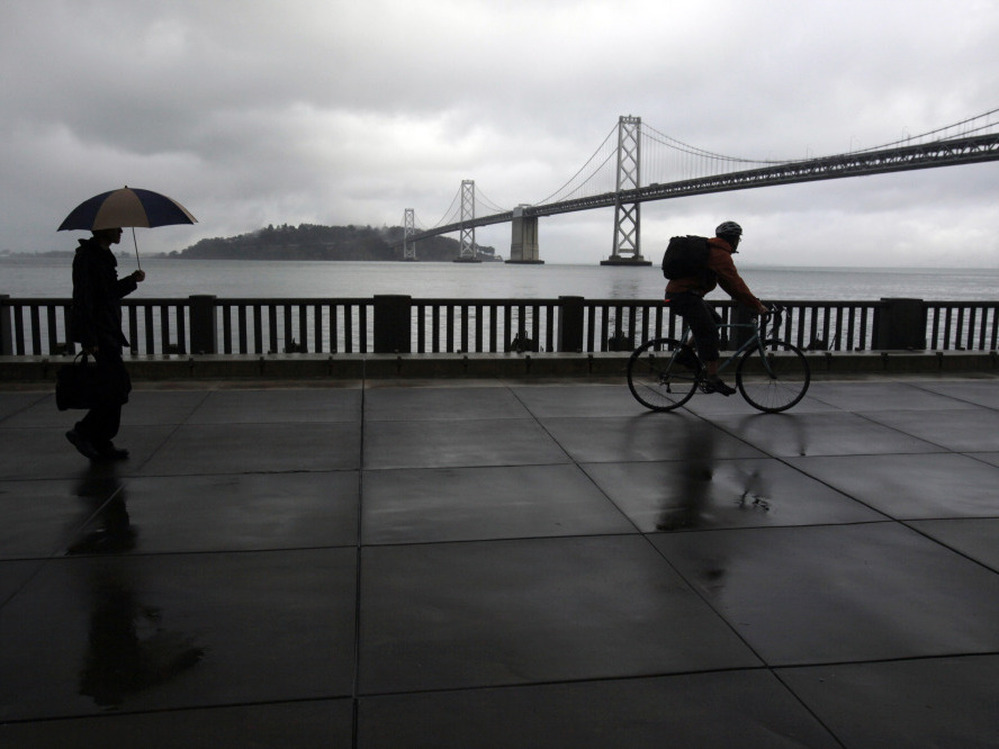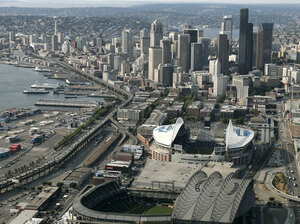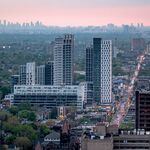M II A II R II K
Senior Member
The End Of The Road: Saying Goodbye To Freeways
March 21, 2011
By Dan Bobkoff

Read More: http://www.npr.org/2011/03/21/134743606/the-end-of-the-road-saying-goodbye-to-freeways
Half a century after cities put up freeways, many of those roads are reaching the end of their useful lives. But instead of replacing them, a growing number of cities are thinking it makes more sense just to tear them down. To Clevelanders like Judie Vegh, the whole idea of tearing down a freeway just sounds crazy. "I think it's a pretty bad idea for commuters because I commute every morning downtown," she says. Vegh takes the West Shoreway each day from her home in the nearby suburb of Lakewood, Ohio. When she learned that the city plans to convert this freeway into a slower, tree-lined boulevard, she was not amused. "If it was 35 miles per hour, I would just be later than usual," Vegh says. Bob Brown, Cleveland's city planner, says this is not the traditional highway project. "The traditional highway project is obviously speeding things up, adding more capacity, but often ignoring the character of neighborhoods," he says.
How did this happen? After all, this is the country that always saw roads as a sign of progress. Now, taking down freeways has gone mainstream. Cities as diverse as New Haven, New Orleans and Seattle are either doing it or talking about it. The chief motivation seems to be money. Milwaukee removed a freeway spur for $30 million. Officials estimated it would have cost between $50 million and $80 million to fix that roadway. That inspired Akron, Ohio, officials to study what to do with an aging six-lane freeway that few motorists use. "Perhaps we can remove sections of it and have it fit in better with the Akron grid system and offer an economic benefit by making land available," says Jim Weber, Akron's construction manager.
This is the city planner's dream: Take out an underused freeway, open up land for new businesses or parks and magically more workers will move back to the city and property values will soar. So far, though, the results have been mixed. Milwaukee hasn't seen as much development as proponents hoped after that city took down a spur of the Park East Freeway. But San Francisco revitalized an entire neighborhood by taking down the Embarcadero Freeway in the early 1990s.
.....
A pedestrian and cyclist are seen along the Embarcadero with the San Francisco Oakland Bay Bridge in the background. San Francisco dismantled a freeway in this location in the early 1990s.

The Embarcadero Freeway, circa 1960, as it once existed along San Francisco's waterfront.

The Alaskan Way Viaduct, the raised two-level highway that runs along Seattle's downtown waterfront, is seen from the air in 2006. Seattle is now replacing it to improve mobility for people and goods.

March 21, 2011
By Dan Bobkoff

Read More: http://www.npr.org/2011/03/21/134743606/the-end-of-the-road-saying-goodbye-to-freeways
Half a century after cities put up freeways, many of those roads are reaching the end of their useful lives. But instead of replacing them, a growing number of cities are thinking it makes more sense just to tear them down. To Clevelanders like Judie Vegh, the whole idea of tearing down a freeway just sounds crazy. "I think it's a pretty bad idea for commuters because I commute every morning downtown," she says. Vegh takes the West Shoreway each day from her home in the nearby suburb of Lakewood, Ohio. When she learned that the city plans to convert this freeway into a slower, tree-lined boulevard, she was not amused. "If it was 35 miles per hour, I would just be later than usual," Vegh says. Bob Brown, Cleveland's city planner, says this is not the traditional highway project. "The traditional highway project is obviously speeding things up, adding more capacity, but often ignoring the character of neighborhoods," he says.
How did this happen? After all, this is the country that always saw roads as a sign of progress. Now, taking down freeways has gone mainstream. Cities as diverse as New Haven, New Orleans and Seattle are either doing it or talking about it. The chief motivation seems to be money. Milwaukee removed a freeway spur for $30 million. Officials estimated it would have cost between $50 million and $80 million to fix that roadway. That inspired Akron, Ohio, officials to study what to do with an aging six-lane freeway that few motorists use. "Perhaps we can remove sections of it and have it fit in better with the Akron grid system and offer an economic benefit by making land available," says Jim Weber, Akron's construction manager.
This is the city planner's dream: Take out an underused freeway, open up land for new businesses or parks and magically more workers will move back to the city and property values will soar. So far, though, the results have been mixed. Milwaukee hasn't seen as much development as proponents hoped after that city took down a spur of the Park East Freeway. But San Francisco revitalized an entire neighborhood by taking down the Embarcadero Freeway in the early 1990s.
.....
A pedestrian and cyclist are seen along the Embarcadero with the San Francisco Oakland Bay Bridge in the background. San Francisco dismantled a freeway in this location in the early 1990s.

The Embarcadero Freeway, circa 1960, as it once existed along San Francisco's waterfront.

The Alaskan Way Viaduct, the raised two-level highway that runs along Seattle's downtown waterfront, is seen from the air in 2006. Seattle is now replacing it to improve mobility for people and goods.





